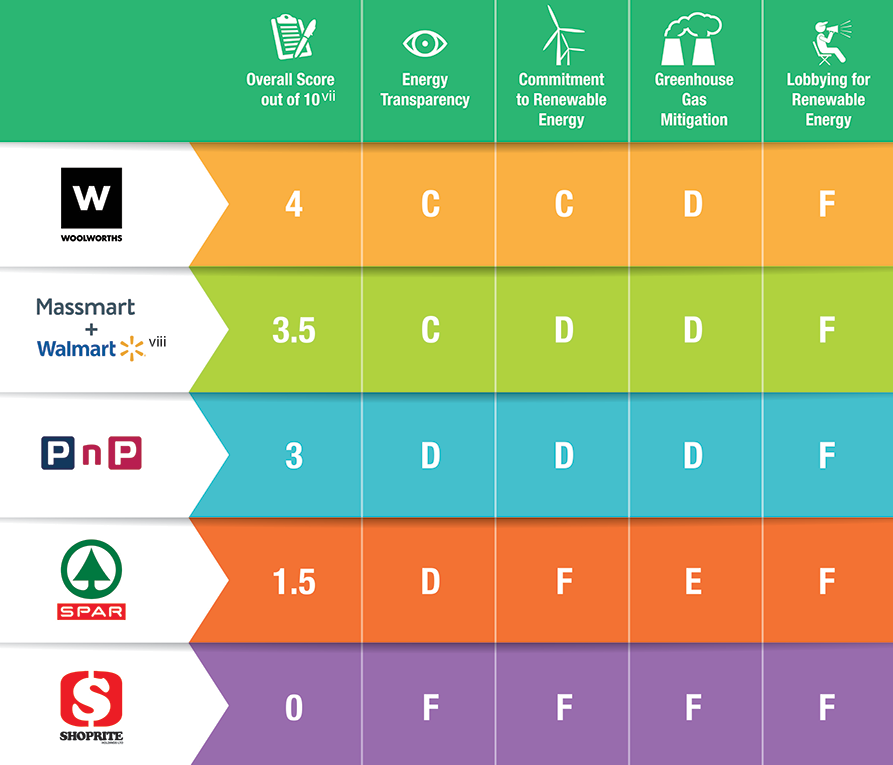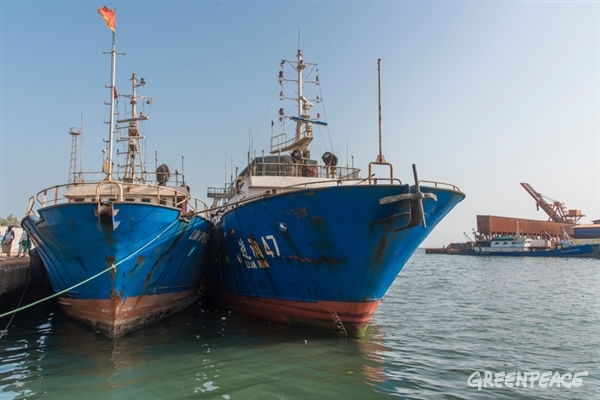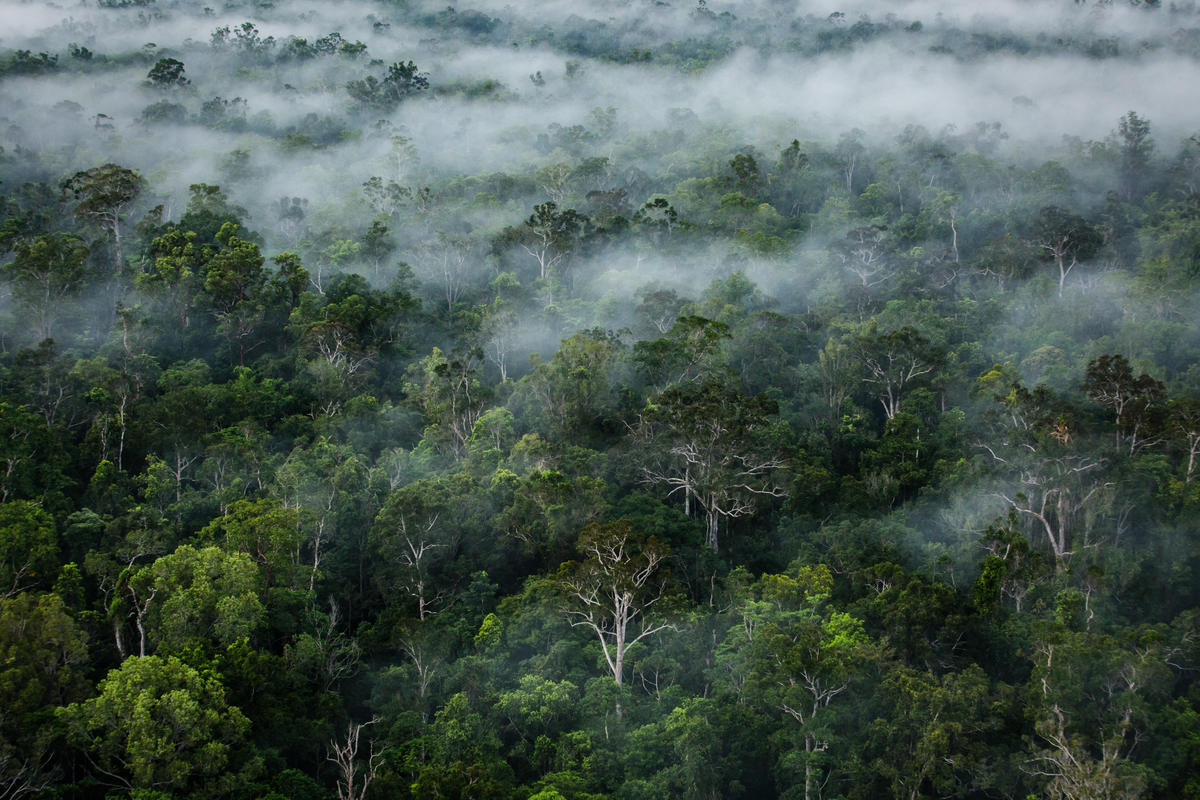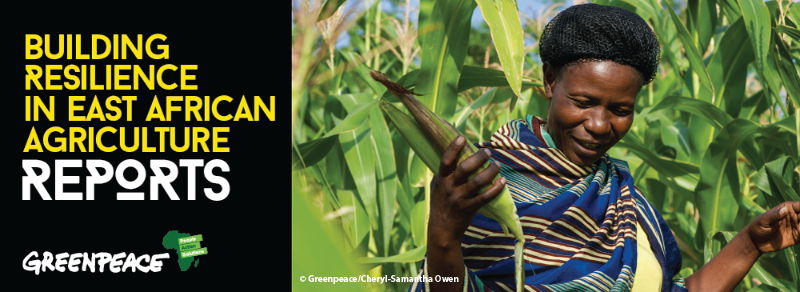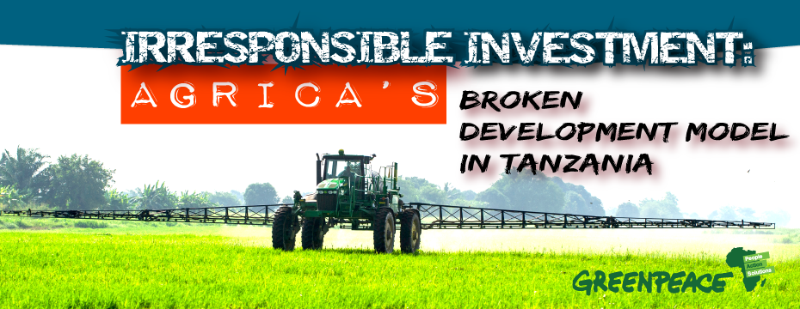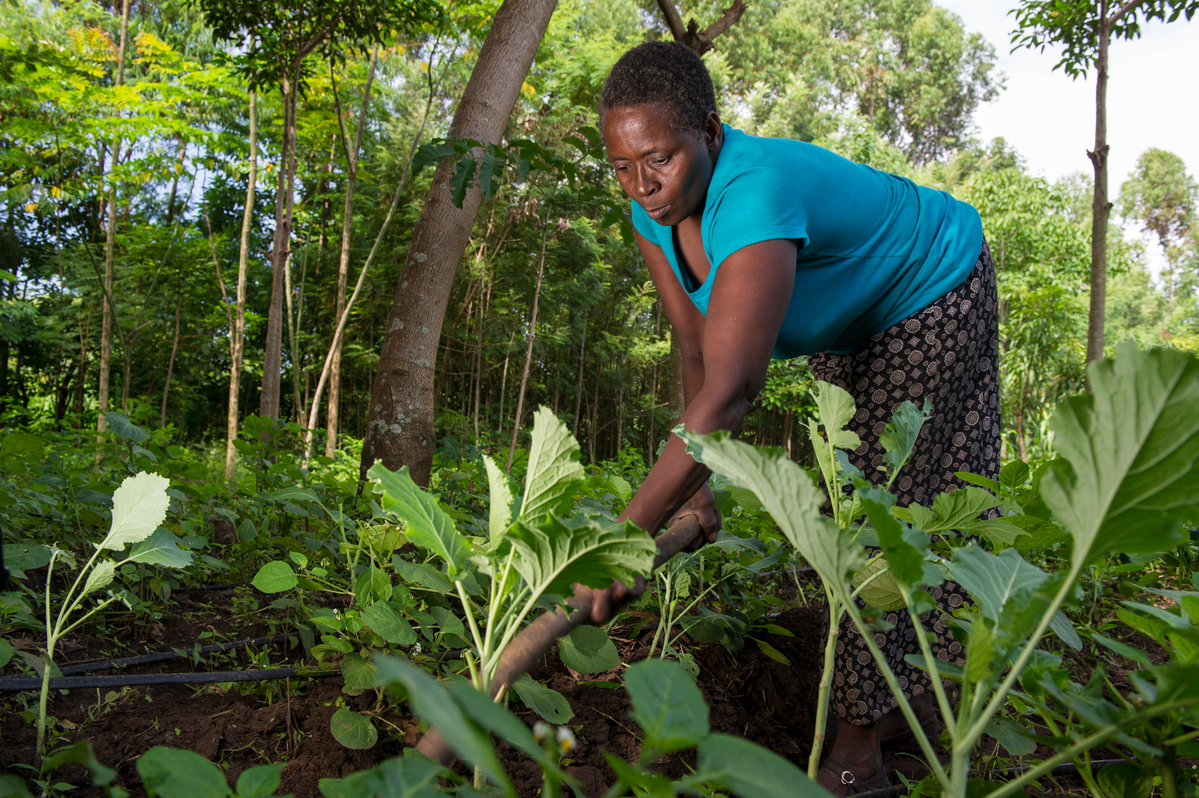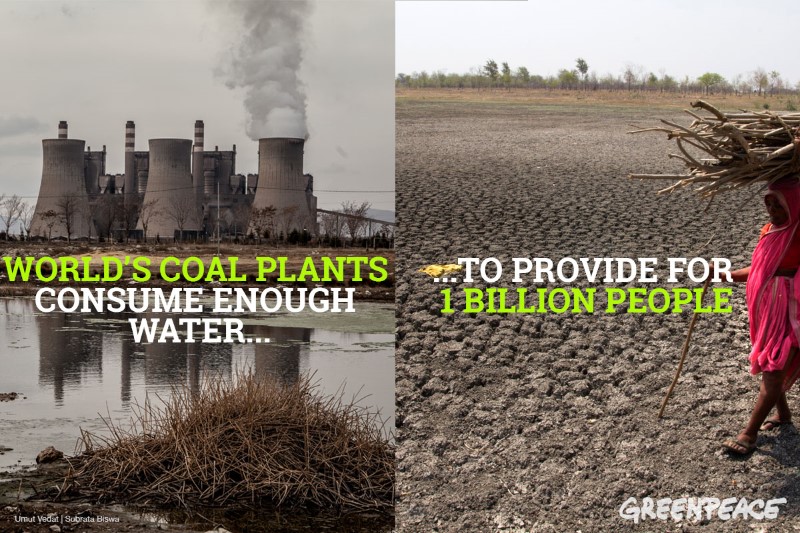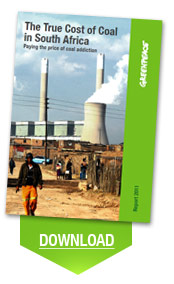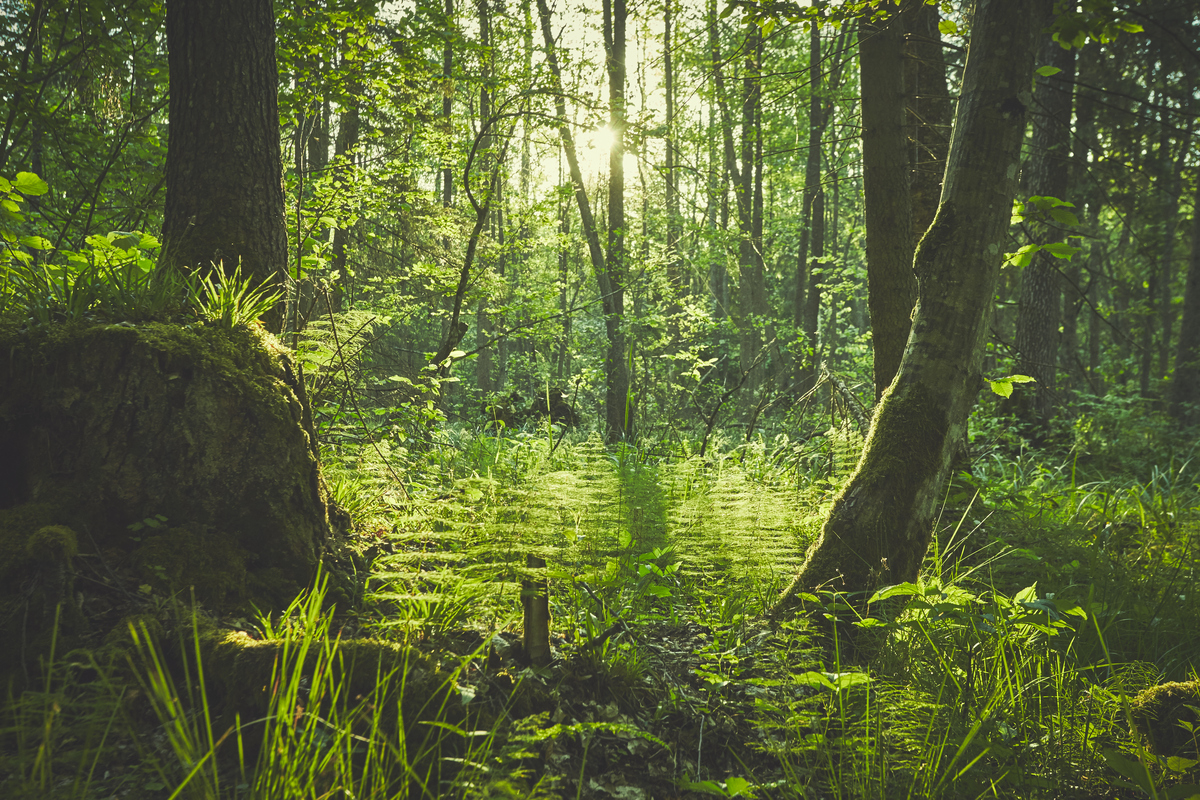All articles
-
Shopping Clean – Retailers and Renewable Energy
South Africa’s top five retailers (Pick n Pay, Massmart, Spar, Woolworths and Shoprite) have a major role to play in shaping sustainable growth in the energy sector and need to champion South Africa’s transition to 100% renewable energy, according to the latest report launched today by Greenpeace Africa.
-
The Great Water Grab
Water is essential for all life on earth and plays a central role in human development: from sanitation and health, to food and energy production, to industrial activities and economic development. However, human activities are depleting our planet’s water resources at an alarming rate.
-
Africa’s Forests Under Threat
From chocolate spread to toothpaste, shampoo to Melba toast, palm oil can be found in countless everyday products.
-
Resilience Reports
Our climate is changing and all over the world we are experiencing more unpredictable and uncertain weather than in the past. Those depending on the weather for their daily bread – farmers and farm workers – are feeling, and will continue to feel, climate change more intensively than everyone else. East Africa has first-hand experience…
-
Irresponsible Investment
Kilombero Plantations Ltd (KPL) is a 5,818 hectare (ha) rice plantation located in the heart of the fertile Kilombero Valley, Tanzania. In addition to developing a large-scale rice farm, KPL works with local smallholder farmers through an outgrower model based on System of Rice Intensification (SRI) technologies. The investment project receives considerable financial and technical…
-
Financing Ecological Farming in Africa
This report provides a resource to the donor community to facilitate the provision of support to ecological farming across Africa. We define donors broadly to include: governments providing bilateral overseas development assistance, multilateral financial institutions, philanthropies, and international (UN) development organisations.
-
License to Kill?
This paper provides an estimate of the health damages and economic costs that would be avoided if Eskom was made to fully comply with the national air emission standards -- the very standards it is currently trying to bypass.
-
The True Cost of Coal
Catastrophic climate change and uncontrollable debt are burdens South Africans will have to bear for their government’s addiction to coal. On top of the escalating construction costs for Kusile, the monstrous coal-fired power plant, the country will have to pay up to R60.6 billion per year for the external costs associated with it.
-
The True Cost of Nuclear Energy
Our new report highlights once again that nuclear power is a dead-end: it would lock the country into an out-dated, expensive and deadly energy future.
-
Crisis for FSC in the Congo Basin?
Greenpeace and many other Forest Stewardship Council (FSC) members and stakeholders are seriously concerned that an increasing number of FSC certificates are being granted around the world to logging companies that do not meet the international principles and criteria for forest stewardship, or key policies and standards.

